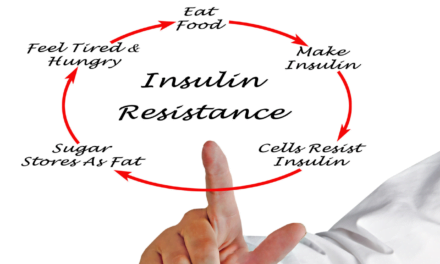Anabolic steroids are synthetic versions of testosterone, a hormone naturally produced in the human body. They were first developed in the 1930s to help treat medical conditions such as delayed puberty and muscle wasting. However, in the following decades, anabolic steroids became popular among athletes and bodybuilders seeking to enhance their physical performance and appearance. In this article, we will explore the link between anabolic steroids and the development of prostate issues.
Anabolic Steroids and Prostate Issues
The prostate gland is a small organ located just below the bladder in men. Its primary function is to produce fluid that helps nourish and transport sperm. Prostate health is closely linked to the balance of hormones in the body, particularly testosterone and dihydrotestosterone (DHT).
Anabolic steroids can affect hormone levels in the body by increasing testosterone production. This can lead to an overproduction of DHT, promoting prostate cell growth and proliferation. Over time, this can lead to an increased risk of prostate issues, including enlargement, cancer, and inflammation.
Mounting evidence supports the link between anabolic steroid use and prostate issues. For example, a study published in “Urology” found that men who used anabolic steroids were significantly more likely to have an enlarged prostate than those who did not. Other studies have found a similar association between anabolic steroid use and prostate cancer.
Types of Prostate Issues Linked to Anabolic Steroid Use
Several types of prostate issues have been linked to anabolic steroid use. These include:
- Enlarged prostate (benign prostatic hyperplasia): Anabolic steroids can promote the growth of prostate cells, leading to an enlarged prostate. This can cause symptoms such as difficulty urinating, frequent urination, and a weak urine stream.
- Prostate cancer: Anabolic steroid use has been associated with an increased risk of prostate cancer. Prostate cancer is the second most common cancer in men, and it can be life-threatening if not detected early.
- Prostatitis: Anabolic steroid use can also increase the risk of prostatitis, which is an inflammation of the prostate gland. Symptoms of prostatitis include pain or discomfort in the groin, difficulty urinating, and flu-like symptoms.
Factors That Increase the Risk of Prostate Issues
Several factors can increase a man’s risk of developing prostate issues, including age, family history, race, and lifestyle factors such as diet and exercise.
Anabolic steroid use can also increase the risk of prostate issues by affecting these risk factors. For example, older men are more likely to develop an enlarged prostate, and anabolic steroid use can exacerbate this risk. Similarly, men with a family history of prostate cancer are already at increased risk, and anabolic steroid use can further increase this risk.
The Link Between Anabolic Steroids and Prostate Issues in the UK
Anabolic steroid use has become a significant concern in the UK, particularly among athletes and bodybuilders. The misuse of these synthetic versions of testosterone can have detrimental effects on prostate health. The prostate gland, responsible for producing fluid that nourishes and transports sperm, is greatly influenced by hormone levels, including testosterone and dihydrotestosterone (DHT).
Impact of Anabolic Steroids on Prostate Health in the UK
Anabolic steroids disrupt the hormonal balance in the body by elevating testosterone levels. This excessive production of testosterone can lead to an overabundance of DHT, a hormone known to stimulate the growth and proliferation of prostate cells. Consequently, the risk of developing various prostate issues, such as enlargement, cancer, and inflammation, is significantly increased.
Prevention and Treatment of Prostate Issues
 Men can take several steps to reduce their risk of developing prostate issues. These include:
Men can take several steps to reduce their risk of developing prostate issues. These include:
- Screening for prostate issues: Men over 50 should get regular prostate exams to check for signs of prostate cancer or other prostate issues.
- Lifestyle changes: Eating a healthy diet, exercising regularly, and avoiding smoking and excessive alcohol consumption can all help reduce the risk of prostate issues.
- Medical treatments: There are several medical treatments available for prostate issues, including medications, surgery, and radiation therapy.
It is important to note that anabolic steroid use can affect the effectiveness of these prevention and treatment methods. For example, some medications used to treat prostate issues may be less effective in men who use anabolic steroids.
Conclusion
In summary, anabolic steroid use has been linked to an increased risk of prostate issues, including enlargement, cancer, and inflammation.
FAQs
What are anabolic steroids?
A. Anabolic steroids are synthetic testosterone versions originally developed to treat medical conditions such as delayed puberty and muscle wasting.
How do anabolic steroids affect hormone levels?
A. Anabolic steroids increase testosterone production in the body, which can lead to an overproduction of dihydrotestosterone (DHT). DHT is known to promote the growth and proliferation of prostate cells, which can lead to an increased risk of prostate issues.
What are some types of prostate issues linked to anabolic steroid use?
Anabolic steroid use has been linked to an increased risk of an enlarged prostate (benign prostatic hyperplasia), prostate cancer, and prostatitis.
Q.What factors increase the risk of prostate issues?
A. Factors that increase the risk of prostate issues include age, family history of prostate cancer, race, and lifestyle factors such as diet and exercise.
Q. How can prostate issues be prevented and treated?
A. Prostate issues can be prevented by regular prostate exams, making lifestyle changes such as eating a healthy diet, exercising regularly, and avoiding smoking and excessive alcohol consumption. Medical treatments for prostate issues include medications, surgery, and radiation therapy.
Q; Can anabolic steroid use affect the effectiveness of prevention and treatment methods for prostate issues?
A. Yes, anabolic steroid use can affect the effectiveness of prevention and treatment methods for prostate issues. For example, some medications used to treat prostate issues may be less effective in men who use anabolic steroids.
What should individuals considering anabolic steroid use think regarding prostate health?
Individuals considering anabolic steroid use should be aware of the potential risks to prostate health, including an increased risk of an enlarged prostate, prostate cancer, and prostatitis. They should also be mindful of the impact of anabolic steroid use on the effectiveness of prevention and treatment methods for prostate issues.
Author

Dr. Aditya K. Sharma
I am Dr. Aditya Sharma, a dedicated urologist specializing in kidney transplants and advanced urological surgeries. My career is driven by a passion for delivering exceptional care and pioneering surgical techniques. Outside the operating room, I have a keen interest in studying the effects of anabolic steroids on bodybuilding, seeking to understand the fine line between enhancing performance and maintaining health.








